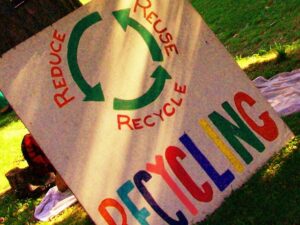
Finding a better way to dispose of the effluent and to keep it from seeping into nearby waterways is the task of Changing World Technologies of Philadelphia. Using a process called thermal depolymerization (TDP), the company will be able to transform turkey waste into high quality oil, clean-burning gas, and purified minerals that can be used for fertilizers and specialty chemicals.
The TDP process uses pressure and heat to mimic the natural processes that create oil. Polymers, the long chains of hydrogen, oxygen, and carbon-bearing molecules, are broken into short chain petroleum hydrocarbons. With an energy efficiency of 85 percent, TDP works with almost any waste product from harbor sludge, corn stalks, and old computers to medical waste, tires, and oil-refinery residue.
The $20-million plant in Carthage is the first commercial application according to Brian Appel, CEO of the Philadelphia technology firm. He expects to process 200 tons of ConAgra turkey waste every 24 hours and extract 600 barrels of oil, 11 tons of minerals and 21,000 gallons of water clean enough to discharge in the municipal wastewater system. The resulting gas will be used to power the plant.
If the TDP process works as anticipated, the possibilities are staggering. For example, if all U.S. agricultural waste were processed, it would yield the equivalent of 4 billion gallons of oil a year. Consider that in 2001, the U.S. imported 4.2 billion gallons of oil. TDP will not only be able to provide critical fuel, but also clean up massive amounts of waste.
 Discover magazine
Discover magazine

